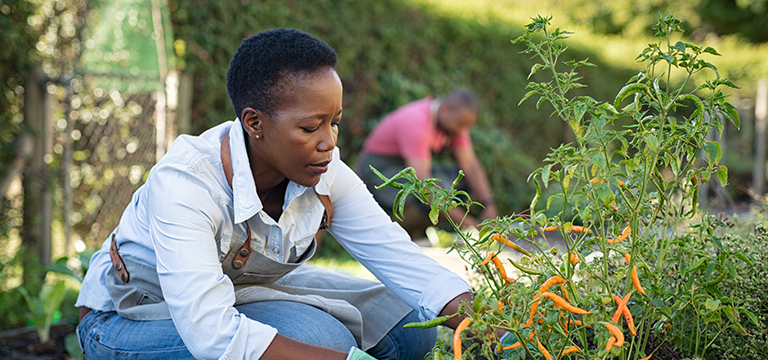All About Eco-Anxiety

What is eco-anxiety?
Climate change can affect our health in different ways. Pollution can have negative effects on physical health. These can range from mild breathing difficulties to cardiovascular issues. Did you know there are mental health effects, too? Eco-anxiety is another serious consequence of climate change.
Eco-anxiety is a fear of environmental damage, disaster and the future of the Earth.
Environmental related anxiety can stem from fear or actual experience with climate-related extreme weather. Media coverage of disasters like hurricanes, droughts and wildfires can be overwhelming. These kinds of anxieties typically come from feeling a lack of control.
The following groups may also be more likely to experience eco-anxiety:
- Displaced people and forced migrants
- People with pre-existing mental or physical health conditions
- People of lower socioeconomic status
- Children and young adults
- Older adults
Climate change can affect mental health in several ways and manifest as:
- Trauma and shock
- Post-traumatic stress disorder (PTSD)
- Anxiety
- Depression
- Substance abuse
- Aggression
- Reduced feelings of control
- Feelings of helplessness
This kind of chronic stress can increase the risk of physical health conditions. It can potentially lead to heart disease, high blood pressure and depression.
How do you know if you have eco-anxiety?
It’s not a condition your doctor can diagnose yet. If your concerns and worries about climate change interfere with your everyday life, you’re not alone though. A survey performed by Yale in 2018 found that about 70% of Americans are worried about climate change. More than half of people surveyed expressed feeling “helpless.”
How can you manage it?
You can’t solve climate change on your own. You can manage your response to environmental issues.
- Take positive action like making greener choices or volunteering.
- Get accurate information about the environment to feel prepared for a potential crisis.
- Spend more time outdoors. Outdoor time can encourage a positive personal connection with the environment.
Mental health professionals can help you identify your biggest concerns. You can work together to develop a plan to restore some control.
Telehealth services can also be a stress-free way to get support for your mental and emotional well-being. If you’re looking to speak to a licensed professional, behavioral health specialists are available to you.
Source: https://www.medicalnewstoday.com/articles/327354


